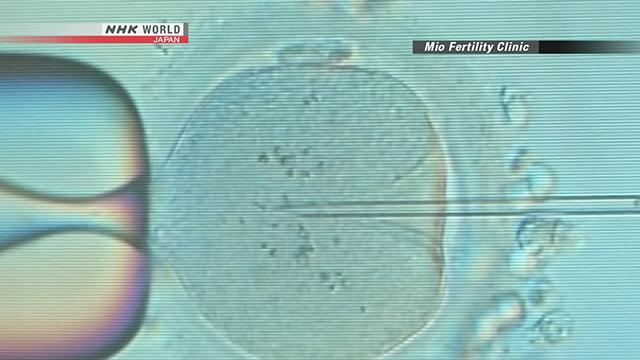The Japan Society of Obstetrics and Gynecology gathered the data from medical institutions.
It found that there were 424,151 cases of IVF that year. It's the first time the number exceeded 400,000 since the survey began in 1985.
This led to over 51,000 babies. The results mean only 11.7 percent of women who underwent in vitro fertilization gave birth. That's one baby born through IVF for every 20 births across the country.
Data also show that the rate of births by women who underwent IVF varied inversely with age. Around 20 percent of women in their 20s who underwent the process gave birth, while 18.9 percent of those aged 34 and 9.1 percent aged 40 did.
Moreover, the number of miscarriages increased along with age. Thirty percent of recipients aged 39 miscarried, as did 40 percent of 41 year olds.
Women aged 40 or older who went through the process accounted for about 40 percent of the total. In other countries such as Britain and France, recipients of the process aged 40 or older accounted for only about 20 percent.
The number of cases has continued to grow ever since the country’s first in vitro fertilization baby was born in 1983 — partly because more women are marrying later in their lives.
Professor Osamu Ishihara of Saitama Medical University said Japanese women are being forced to undergo continual infertility treatment as a result of starting the treatment later. He noted the need to raise public awareness so that women who want the procedure can begin treatment early, as well as an environment that encourages women to give birth at a younger age.
